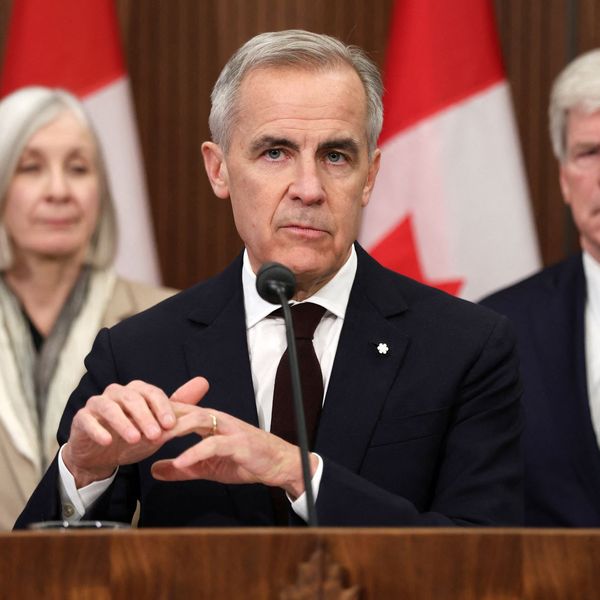Before a
US State Department draft review came along earlier this year claiming that construction of the controversial Keystone XL pipeline would have no impact one way or the other on expansion of tar sands mining operations in
Alberta, it was standard practice--indeed, part of the sales pitch--for Canadian officials to argue that building Keystone, and the export pipeline network in general, was essential for continued growth of the mining.
In the aftermath of that draft assessment, however, the same officials in Canada who once argued strenuously for the pipeline to be built in order to "grow" production went conspicuously silent on the issue.
According to internal Canadian government documents obtained by the Pembina Institute, a Canadian environmental think tank and advocacy group, and reporting from the New York Times, what seems like coded silence, probably is.
As the New York Times reports:
Briefing notes prepared for [Canada's] natural resources minister, Joe Oliver, before a trip to Chicago to promote Keystone XL in March, noted that "in order for crude oil production to grow, the North American pipeline network must be expanded through initiatives, such as the Keystone XL Pipeline project."
Clare Demerse, director of federal policy for Pembina, said in an interview on Saturday that expanding crude oil production in Canada is synonymous with developing the oil sands. Canada has 168 billion barrels of oil sands reserves compared to about 4.1 billion barrels of conventional oil reserves.
"This is the heart of the debate right now," she said. "The documents certainly suggest that Natural Resources saw Keystone as essential to increasing oil sands production until the State Department concluded otherwise."
Indeed, in late April, before Mr. Oliver took his pipeline campaign to Washington, the wording about growth in crude production vanished from largely similar briefing notes. It was replaced by a section noting that the State Department's environmental assessment "also concluded that 'approval or denial of the proposed project is unlikely to have a substantial impact on the rate of development in the oil sands or the amount of heavy crude oil in the Gulf Coast area.' "
In other words, it no longer makes sense for the Harper government to claim the Keystone will have an impact on expansion, so they've decided to just drop the talking point from their portfolio.
As previous Common Dreams reporting has documented (here, here and here), the draft version of the US State Department's environmental impact statement (known as an SEIS) has been slammed by environmental groups and experts for numerous and varied reason since it was released earlier this year.
A final version of the SEIS is expected this fall or perhaps even in early 2014.
______________________________________



